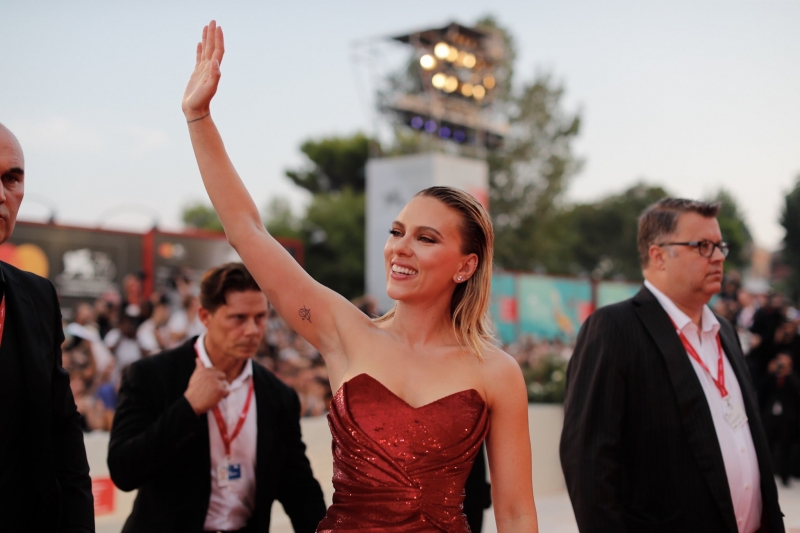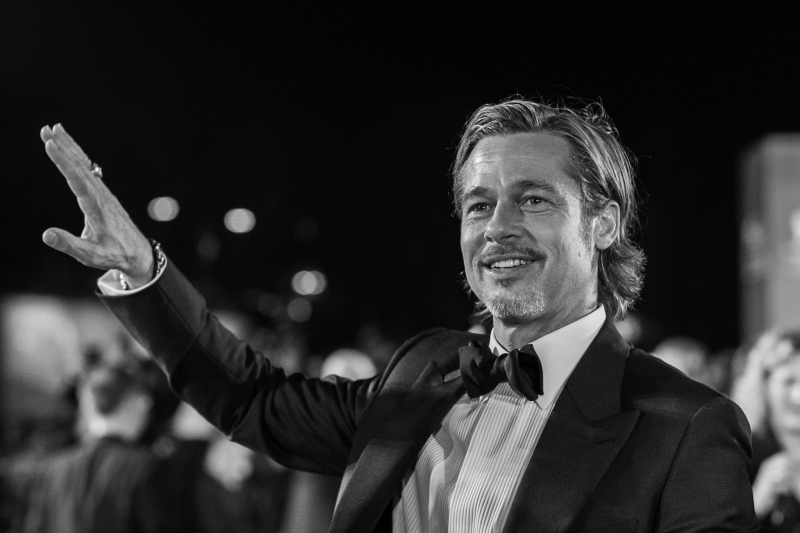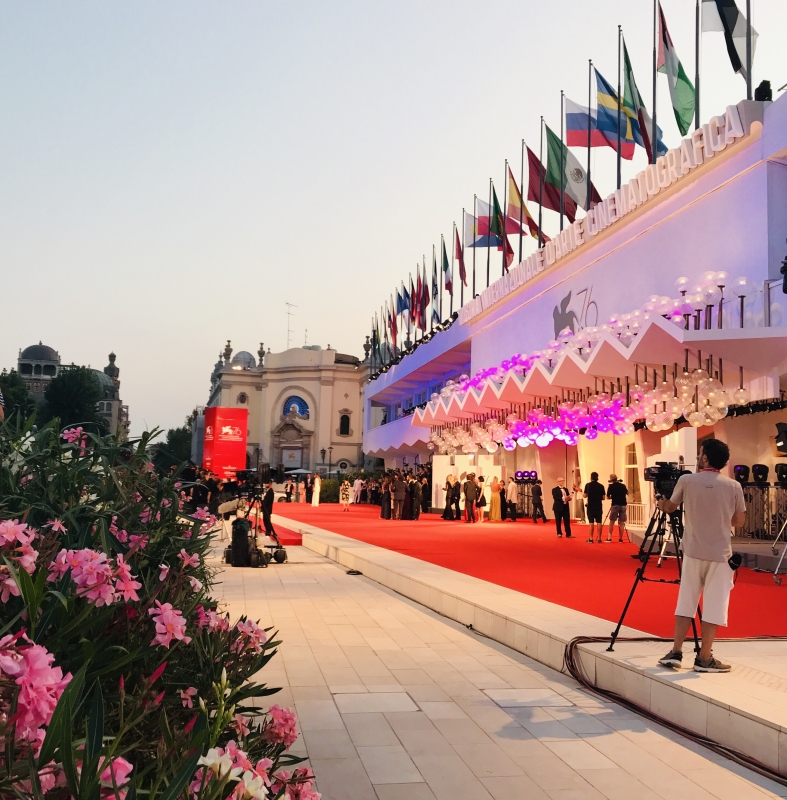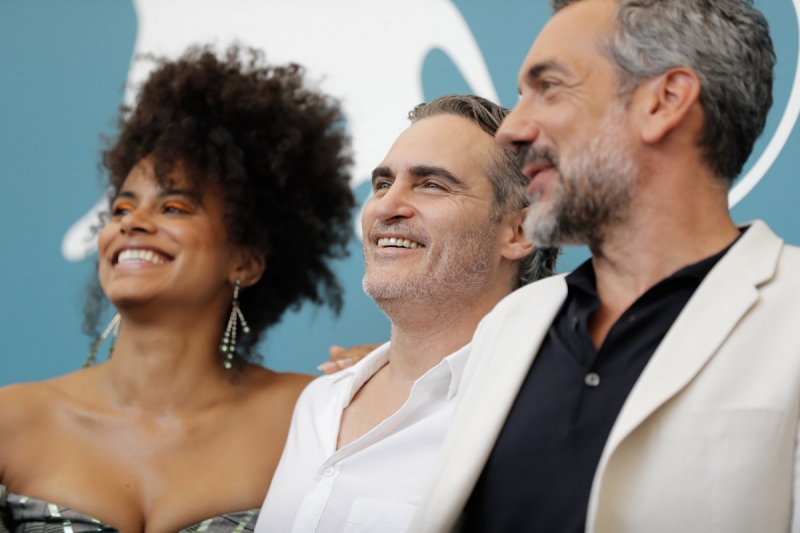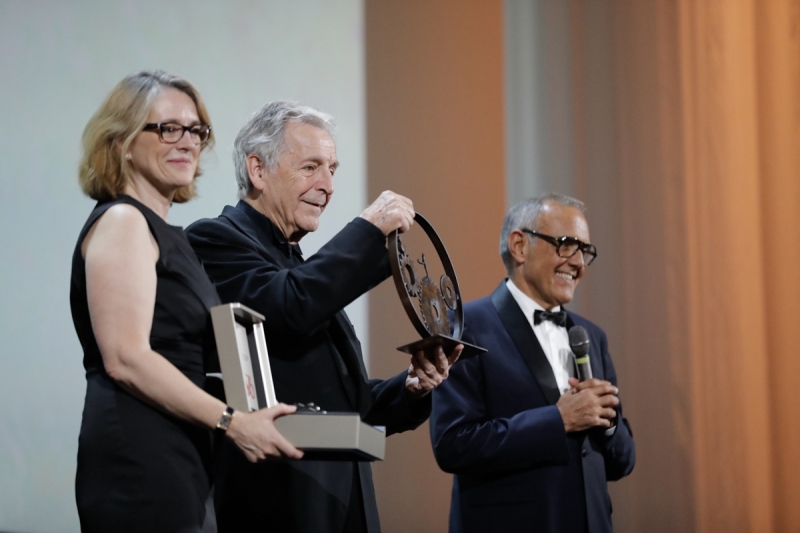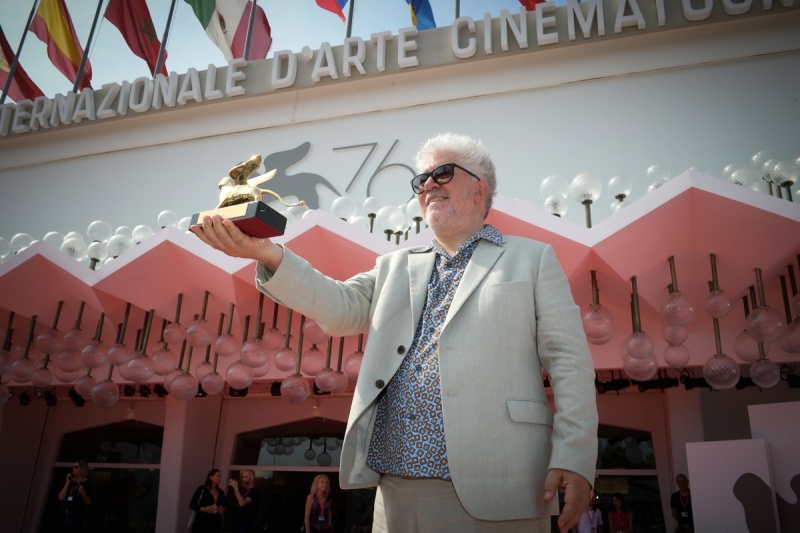|
|
||
|
Pro Tools
FILMFESTIVALS | 24/7 world wide coverageWelcome ! Enjoy the best of both worlds: Film & Festival News, exploring the best of the film festivals community. Launched in 1995, relentlessly connecting films to festivals, documenting and promoting festivals worldwide. Working on an upgrade soon. For collaboration, editorial contributions, or publicity, please send us an email here. User login |
Io Sono Li, interview with Andrea Segre
photo from Venice poster at La Biennale, 68. This past week I attended the 8th annual Reykjavik Film Festival (RIFF) after going nonstop from Venice La Biennale, then to TIFF and then to RIFF. I was tired of course but so anxious to catch up on the films that I had missed at the former festivals that appeared also in Iceland. One of these films was one that had received a great buzz in Venice, a lyrical and confrontational film about art and immigration, love and life, winter and lagoons, by Italy’s young feature film director Andrea Segre. In Reykjavik we spoke at length about his highly praised SHUN LI AND THE POET (IO SONO LI, 2011), on immigration injustices and also on his cinema of ‘the two silences’…
ME: So, here we are in Reykjavik doing our interview. Today there is crazy wind and rain outside and we are sitting over a drink inside the Plaza Hotel in Reykjavik. So, I will speak in English and you will speak in Italian, right? ANDREA: Right. ME: You’re here with your film which in Italian is called: IO SONO LI and in English, SHUN LI AND THE POET, which premiered this year in Venice at the 68th La Biennale and is now showing at the Reykjavik International Film Festival. Can you tell us…Who is LI? ANDREA: Li is a Chinese woman who lives in Italy because she is waiting for her son to arrive in Italy from China. She works and the money that she makes is to pay for the travel of her son. But she doesn’t know how long this will take and how long she must wait. ME: What kind of work does she do? ANDREA: In the beginning she works in a clothing factory making clothes and shirts in Rome. Then she is moved to work in a restaurant in Chioggia, a lagoon near Venice because they bought an old bar and she goes to work there as a waitress. This is an old bar of traditional fishermen. The Chinese don’t change. They stay all the same but behind the bar there is Shun Li. And in this bar she encounters one of the fishermen who came from Croatia about forty years ago. He is about 60—70 years old and she is 20-30 years old. They begin to fall in love and together they make some journeys in the lagoon during winter. They begin to understand a lot of new things about themselves, but the other Chinese and Italians don’t understand and this begins to create a problem. ME: Because the other Chinese are staying closed while she is assimilating to Italian culture? ANDREA: The problem is that the locals from Chioggia start talking badly about her because they’re jealous. In Italy the waitress is the most important job in a restaurant. It’s always a woman and someone that everyone knows very well, all the fishermen and men that are in there. And this becomes difficult for the Chinese. Beppe, her lover, knows her. He learns to understand her but the others don’t. The others are worried about this, no? And this preoccupation of the others becomes fear and racism and they begin to spread rumors that Shun Li is from the Chinese Mafia and came to marry the old man Beppe with plans to kill him. It’s all made up words but these words make Li’s Chinese boss worry. He says that if the Italians talk badly of us then it will be bad for business so they tell Li that she cannot see Beppe anymore. ME: So who is her Chinese boss? ANDREA: He runs the restaurant and controls the life of Shun Li because even though she has documents to work in Italy, this was the boss who gave her the documents so he controls her. ME: Why Chioggia? I’ve never seen a film set there so it’s very interesting. ANDREA: My mother is from Chioggia and I was raised partly there when I was a baby and also because the lagoons of Chioggia are beautiful and I like them a lot. I love the place there and it’s a place I wanted to film in, and also because this story about Shun Li is based on a true story. In the restaurant where I shot the film there is a Chinese woman who really works there. ME: Does she know about this film? ANDREA: Yes, she also acts in the film. Not the main role but another part. ME: Was it a difficult film to produce? Like how many years from start to finish? ANDREA: It was difficult enough, yes. I wrote the subject in 2008 then it became part of the New Cinema Network at the Rome Film Festival to develop the project and won first prize for development for European projects at Cannes and with this money I wrote the script. And then it was funded by Arte in France and later an Italian co-production with France. It took two years of development and then six weeks to shoot. So, from beginning to finish it was two years. So, yes it was difficult but it was beautiful. It wasn’t an expensive film as it only cost 2million Euro but it was my first work. ME: So, what was it like to have you premier in Venice? How did that go? ANDREA: It was very powerful, very strong. There were 1500 people and all were clapping a lot. It was beautiful to see that everyone followed the film and understood. They even laughed at the beginning because the Osteria/restaurant is a place where there are lots of old men drinking, talking, laughing etcetera. So, there are moments where people laughed and then moments where there was silence. So it shows the film was made well to maintain the attention of the audience. Also, the critique of the film is good both in Italy and abroad. So, we will see. ME: Does the film have distribution in Italy already? ANDREA: Yes, in Italy it’s already out in theaters from 23 September. In France it will open in January or February. There is a distribution in Australia and we will see for the rest. ME: And now you’re in Iceland, a beautiful tropical island where the sun is shining. LOL ANDREA: Ah, si… It’s beautiful. It’s hot and I’m well and we are going to the beach. LOL. Well, I was invited here with the film and I had never been to Reykjavik so I thought, ‘okay, let’s try’. It seemed beautiful. It’s a bit cold but beautiful. ME: So, what will you do next? ANDREA: I’m already working on a new documentary. I’m the director and producer of it. It’s funded by an American company, and it’s about refugees escaping from Libya. ME: That’s right, you were saying that you’ve spent a lot of time in North Africa and also Tataouine. ANDREA: Actually, this film I shot near Tataouine was also near the border of Libya. ME: As you’ve worked on a few of documentaries there, what is your fascination with North Africa? ANDREA: Other than being Mediterranean and near Italy we have a lot of things in common in history. But in the world today we are very divided. We are on the right side and they are on the wrong side. And this separation, this wall is ugly because there is no exchange between the two and I want to bring down that wall and find a way to get over it. I would like to see a world in which that wall doesn’t exist. I make films to show Italians these walls and to understand myself what this wall signifies. They cannot travel on that side. On our side we can. Here we are in Iceland and tomorrow you go to France and I go to Italy and then if you want you can go to Tataouine or go to Abu Dhabi or wherever you want to go. But there is a big part of the world that cannot do what they want. If they decide tomorrow they want to come to Reykjavik, they cannot…[He looked outside at the terrible Iceland weather] But maybe that’s better for them… [We both looked outside at the howling wind and pouring rain and laughed] ME: So, do you have any closing words you’d like your audience to think of you by until they can see your next film? And will you direct another feature in the future? ANDREA: Yes, I’m already writing a new script for a feature. ME: So, why make movies if you want to change the world? Why not enter politics? LOL. ANDREA: No, I don’t want to. But I also don’t think my film can change the world, but… ME: Well, at least you get people talking about the situation and thinking about it. ANDREA: I don’t make films for political reasons. I make films because it makes me feel bad when I know a story that has a lot of injustice in it and the world has a lot of silent injustices. I work to go against that silence. Also, there is a silence that I like. In the film there is a lot of silence. IO SONO LI has a lot of silence in it. But this is another kind of silence. That is the silence of poetry of a quiet place inside. But the silence where no one knows anything and no one does anything, that is an ugly silence. ME: What exactly do you mean? ANDREA: You have two different silences. One silence is an internal silence, the silence of the soul, thought, the lagoon in the winter… ME: The silence of the sublime… ANDREA: Yeah, that’s it. And this silence I like very much and I try to build on it. It’s a silence like this… [Then we sat in a total silence for at least half a minute]. This silence I love... The other silence is that of censorship. ME: Ah, the silence where no one does anything. ANDREA: yeah, the power needs the silence to cover the injustice. And under this silence there are many lives, many people who are oppressed under this silence. They are victims of this silence. And it is this that moves me. I don’t think with my films that I can change the world but I would like to think I can climb over the wall of this second unjustified silence. So in my cinema, I confront both silences; the silence that I love and the silence that I hate. ME: Can you make your next film about these two silences please? ANDREA: Good idea. ME: It’s a great idea… And now I too will be silent, the good silent, the thoughtful and sublime one that Andrea has described so poetically now and in his film. Thanks Andrea. It is interviews like this that keep me doing them.
Interview conducted by Vanessa McMahon, October 01, 2011
IO SONO LI…by director Andrea Segre with Rade Serbedzija (Beppe) and Tao Zhao (Shun Li). At RIFF, the film received Special Jury Mention: “For the poetry and grace employed in treating the subject of the integration (or lack of integration) of immigrants in western society.” RIFF
05.10.2011 | Mostra Internazionale d Arte Cinematografica Venice's blog Cat. : Abu Dhabi Album Andrea Andrea Segre Arte Australia Beppe Biennale Cannes Cannes China Chioggia Croatia Director director and producer film director France Genealogy Iceland interview with Andrea Segre IO SONO LI Italy Law Law Libya Mediterranean Next Magazine North Africa Person Attributes Person Career Person Travel Plaza Hotel POET premier Rade Serbedzija (Beppe) Reykjavik Rome SHUN LI Silence Tao Zhao Technology Technology the Reykjavik International Film Festival the Rome Film Festival Today Vanessa McMahon Venice waitress Interviews |
LinksThe Bulletin Board > The Bulletin Board Blog Following News Interview with IFTA Chairman (AFM)
Interview with Cannes Marche du Film Director
Filmfestivals.com dailies live coverage from > Live from India
Useful links for the indies: > Big files transfer
+ SUBSCRIBE to the weekly Newsletter Deals+ Special offers and discounts from filmfestivals.com Selected fun offers
> Bonus Casino
User imagesAbout Mostra Internazionale d Arte Cinematografica Venice Oldest festival in the world, MOSTRA is Non-specialised competitive event for features and shorts. Two competing sections and three Prizes: the Golden Lion, the Lion of the Year and the Lion of the Future to best director`s debut film. View my profile Send me a message The EditorUser contributions |



















